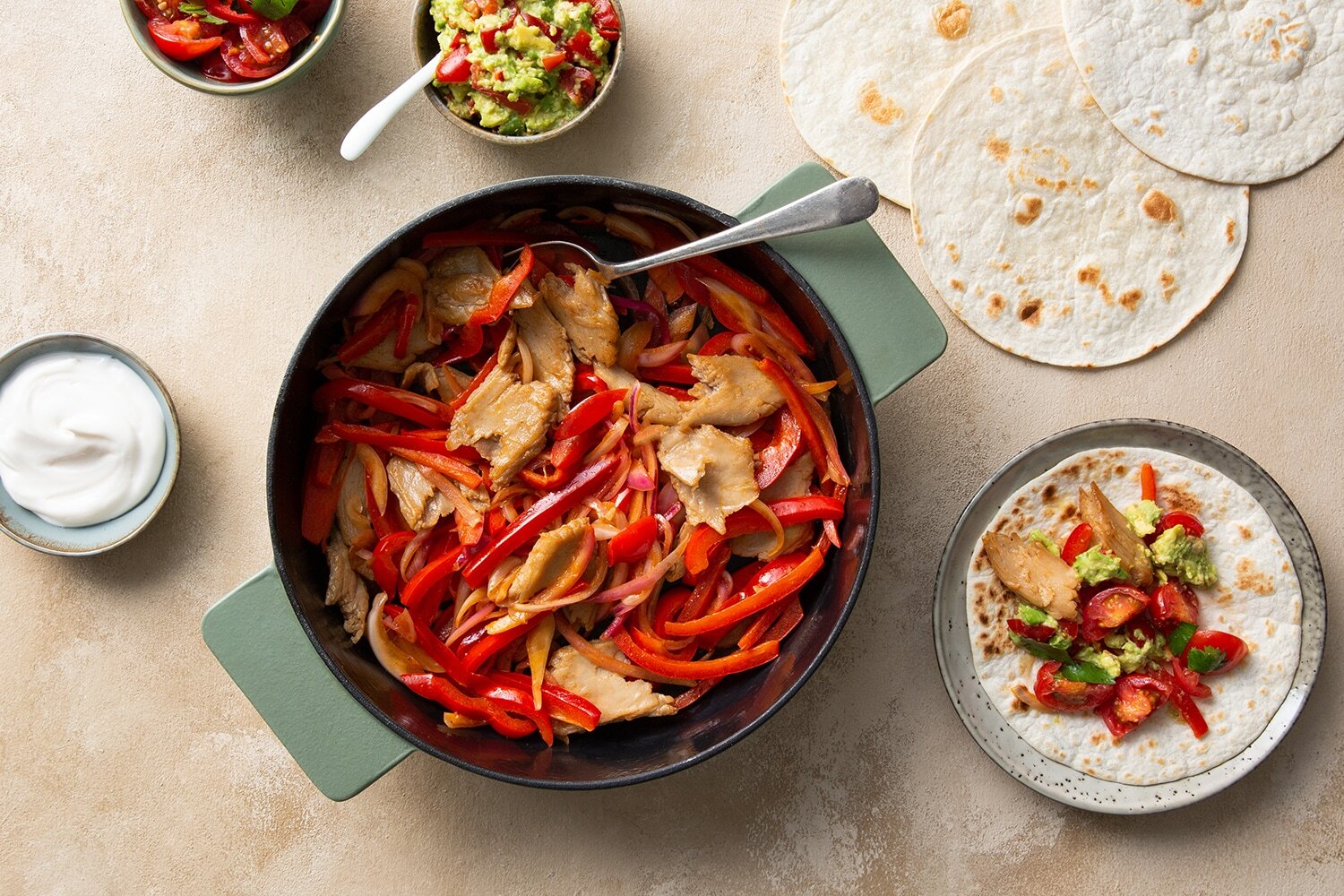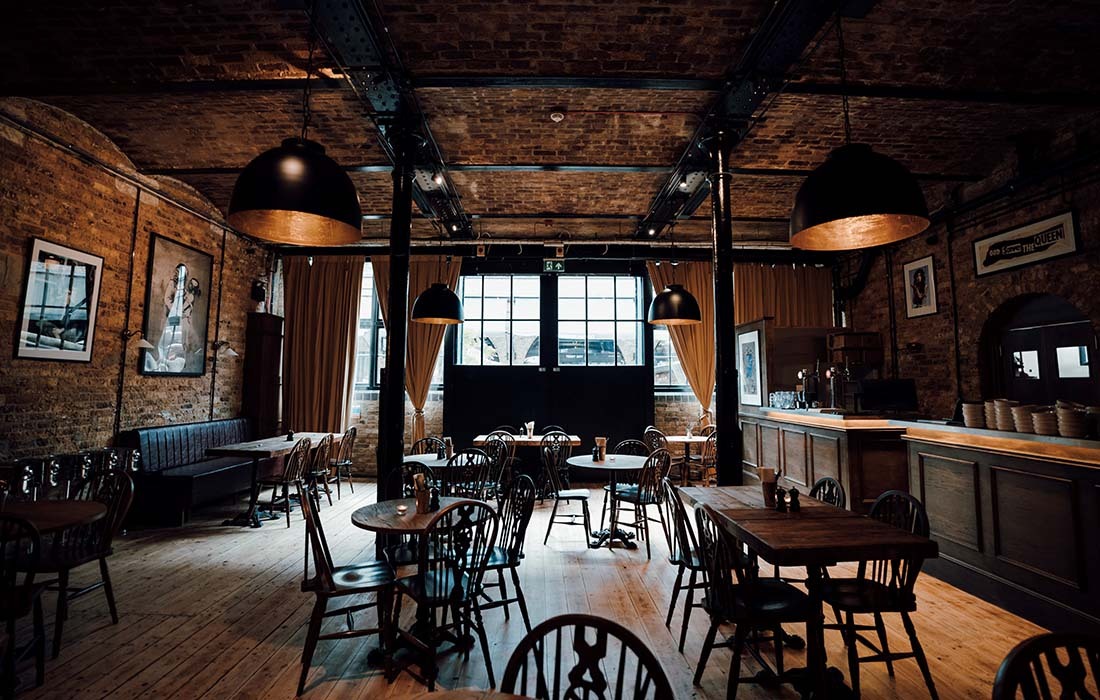It’s time to take the vegan 'trend' more seriously
Sponsored article: Vegan dishes make up over a third of orders for some hospitality businesses – so is now the time to start taking this ‘trend’ more seriously?
It’s no secret that many consumers concerned about the environmental, ethical and health impacts of eating meat have chosen to cut down their intake in recent years. During lockdown last year, 22% of consumers cut down on their meat consumption (1) and Deliveroo reported a massive 187% increase in vegan orders (2).
This is one ‘trend’ that isn’t going anywhere – yet many hospitality businesses are reticent to embrace plant-based. This scepticism is born from a number of things: how can I put vegan dishes on my menu easily, while also justifying a price-point that’s on parity with dishes where meat is centre of plate? And won’t the whole thing just deliver a less satisfying experience for my customers?
With meat-free meals, 89% are eaten by non-vegetarians (3), so even if your menu is traditionally meat-orientated, there is no underestimating the importance of plant-based as part of your offering. The plant-based revolution is clearly both an opportunity and a challenge: the need to satisfy consumers and add breadth, diversity and wider appeal to menus, while serving suitable-for-vegan dishes that avoid adding complications to the flow of the kitchen. There is therefore a real need and demand for products that can address both of these things – which is where the meat replacements market is thriving.
Meet the new meat on the block
The Vegetarian Butcher is a leading light in the meat replacements category. With a broad range of meat alternatives from ‘NoChicken’ to ‘NoHotdog’, they’re more than just another veggie burger. Years of research and development has taken them from humble beginnings in Holland to being the “butcher of the future”, with a complete product range that cooks like meat, tastes like meat and has the texture of meat. Soy-based and packed with protein, The Vegetarian Butcher enables chefs to serve up satisfying, meat-like food experiences – without sacrificing a thing.
Meet the meat-loving chefs who’ve made the switch
The Vegetarian Butcher asked a team of chefs to put their products to the test in their own restaurants. See what they had to say and get inspired with their original recipes.
Dan Place, owner and chef at Northern Soul, Manchester
Manchester’s Northern Soul has been serving mouth-watering grilled cheese sandwiches that have been drawing queues around the block since launching in 2015. Founder Dan Place has been on a real journey with the business over the past six years and has experienced first-hand the growth in demand for veggie alternatives to his meat-packed favourites:
“At the start, we were proper meat, meat, meat – the bigger, the badder, the better,” he explained. “Then we quickly realised that the vegetarian market for us was huge. The corner has turned in terms of imitating real meat. Some of the products coming onto the market now [are] unreal, like the NoHotDog from The Vegetarian Butcher. You cannot tell it’s not a hotdog.”
Some of the products coming onto the market now [are] unreal, like the NoHotDog from The Vegetarian Butcher. You cannot tell it’s not a hotdog
Nelson Lam, co-founder and creative chef at Viet Shack and Dunkin’ Burgers, Manchester
“We concentrate a lot on vegan dishes,” Nelson tells us. “Last year when we reviewed our numbers, we did 38% of [sales] vegan.”
Nelson quit his job as a personal stylist to turn his hobby and passion for Vietnamese cooking into Viet Shack, a hugely successful Vietnamese street food restaurant in Manchester. He also took the plunge during the height of the Covid-19 pandemic in 2020 to launch his second venture, Dunkin’ Burgers, and has seen his sales and social media following skyrocket in just a few months.
Nelson has always understood the importance of plant-based options on the menu – an understanding clearly reflected is his successful sales figures. On sampling The Vegetarian Butcher’s NoBeef Burger, he said: “We just couldn’t believe how delicious it was – you couldn’t tell the difference between the vegan option or the beef one to be honest.”
You couldn’t tell the difference between the vegan option or the beef one to be honest
How to make plant-based profitable
The team behind The Vegetarian Butcher believe that chefs don’t need to sacrifice anything to serve up meat-free dishes that tick all the taste, texture and flavour boxes for vegans and meat-eaters alike. They also believe that their meat alternatives can help businesses to overcome one of the key challenges associated with vegan and plant-based dishes in the future: that of pricing. Many restaurateurs struggle to reach their cost-per-head benchmarks for vegan dishes; torn between seemingly ‘ripping off’ vegan diners and making enough margin from the dish to justify its position on the menu. With quality meat replacements, however, chefs can heighten the perceived value of a vegan dish in order to justify the price point.
Find out more about The Vegetarian Butcher
Visit ufs.com/tvb for recipe inspiration and to find out more.
- Attest Consumer Survey for The Vegan Society.
- theveganreview.com/deliveroo-reports-a-187-increase-in-vegan-orders/
- Kantar Worldpanel Division, Meat free & plant based occasions, 52 w/e Feb 2019.















